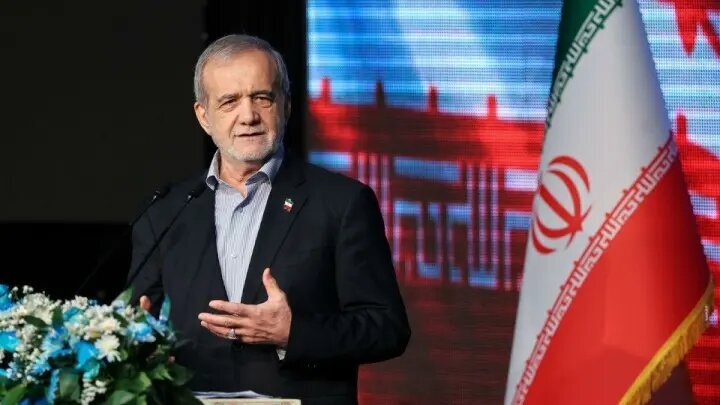
The event is being held at Tehran’s Summit Conference Hall, after a 15-year hiatus and in line with the government’s policy of engagement and developing cooperation with neighboring countries.
Ministers and senior officials from Pakistan, Tajikistan, Turkmenistan, the Republic of Azerbaijan, Afghanistan, Kazakhstan, Kyrgyzstan, Turkey, Uzbekistan, and the Islamic Republic of Iran, along with the ECO Secretary-General, the Interior Minister of Oman, and the Deputy Interior Minister of Iraq as guests, are attending the event.
Speaking at the 4th Meeting of Interior Ministers of the Economic Cooperation Organization (ECO) in Tehran, Iranian President Masoud Pezeshkian welcomed the participating delegations and described the gathering, held after a long hiatus, as a sign of renewed determination among member states to strengthen cooperation and coordination in key areas of mutual interest.
Pezeshkian emphasized that interior ministries play a vital role not only in their specialized fields but also in providing the essential foundations for economic development — namely, security and social stability.
He noted that in multilateral economic cooperation, it would be illogical to overlook the role of interior ministries, as they are crucial for ensuring resilience and predictability in regional frameworks.
Highlighting the importance of cross-border collaboration, the president said that joint efforts in border management, law enforcement, and the fight against illegal migration, human trafficking, drug smuggling, terrorism, and organized crime are central to achieving lasting regional stability and prosperity.
President Masoud Pezeshkian said that ministers and their affiliated organizations play a crucial role in national and regional responses to future crises such as natural disasters, pandemics, geopolitical shifts, and other security challenges.
He stressed that the ECO region now needs strong institutional foundations more than ever before. The organization, he said, is the result of persistent efforts by member states toward economic integration and has achieved notable progress — yet vast untapped capacities remain.
Pezeshkian welcomed the growing determination among ECO members to deepen cooperation, noting that the recent summit in Khankendi, Azerbaijan, reflected this shared commitment. He added that the proposed ECO Vision 2035 will further chart a promising path for regional growth and partnership.
President Masoud Pezeshkian warned that the region and its surrounding areas have long been exposed to external interference, noting that some of the greatest foreign interventions in modern history have occurred in this region.
He referred to the ongoing occupation in Gaza and described the recent atrocities in Gaza as one of the most horrific genocides and crimes against humanity in recent years, Mehr reported.
Pezeshkian stressed that persistent ambitions among international powers to interfere in regional affairs make it imperative for ECO member states spanning Central Asia, the Caucasus, South Asia, West Asia, and the Persian Gulf to jointly build a coherent, stabilizing, and development-oriented regional security architecture.